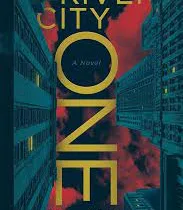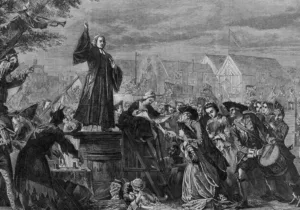The United States has a rich history of foreign policy traditions, stretching all the way back to George Washington’s farewell address. Regardless of how one views the history of American foreign policy, it is vital to first understand the full scope of that history. Otherwise, we risk divorcing our politics from the constraints of reality. At Providence, we believe wisdom, depth, and a keen sense of history are essential to best pursuing our ideals in a far from ideal world. Here are some of the top books to help you understand the history of American foreign policy.
Promised Land, Crusader State: The American Encounter with the World Since 1776
by Walter A. McDougall
In this book, Pulitzer Prize-winning author Walter McDougall canonizes the dominant American foreign policy traditions from 1776 through the end of the Cold War. He approaches the subject by dividing foreign policy views into the “Old Testament” and the “New Testament,” with four traditions within each. McDougall unpacks how the tension between America preserving its own “Promised Land” at home and crusading its values abroad has animated and continues to animate US foreign policy debates. For understanding how Americans have thought about international issues throughout the country’s history, this is a must-read.
American Diplomacy
by George F. Kennan
Originally published in 1951, American Diplomacy is one of the most enduring and informative books about American statecraft and international relations. The book is a collection of lectures and articles by George Kennan, a career diplomat and the mastermind behind the decades-long strategy of containment. The selections specifically examine America’s foreign policy between 1900 and 1950, but the themes and questions examined are just as relevant today as they were in 1951. These themes include the limits of military intervention and value propagation abroad and the importance of humility in our posture towards foreign affairs.
Special Providence: American Foreign Policy and How It Changed the World
by Walter Russell Mead
Special Providence begins with the idea that America’s foreign policy has been the most successful foreign policy in modern history. The first sentence of the book reads, “This is a book about how and why American foreign policy works.” Mead examines the four prominent American foreign policy camps responsible for that success, categorizing them by the names of American political leaders: Alexander Hamilton, Thomas Jefferson, Andrew Jackson, and Woodrow Wilson. The book explores how these schools have impacted foreign affairs throughout American history. Mead argues that the competition and dialogue among these four schools over the past two centuries has produced a better foreign policy than any one tradition could have done.
World Order
by Henry Kissinger
Henry Kissinger is one of the most widely recognized foreign policy figures. Serving as secretary of state in the Nixon and Ford administrations, Kissinger is an avowed realist and expert strategic thinker. World Order brings Kissinger’s diplomatic experience and strategic expertise to bear on the history of international politics. Kissinger lays out the history of world order beginning with the Peace of Westphalia up through the multipolar global sphere of the present day. While the book has a broader focus than just America’s foreign policy, the US plays a central role in the contemporary challenges to global order. Kissinger provides keen insights on foreign policy issues ranging from nuclear proliferation to cybersecurity to the character of our leaders in the Internet Age.
Evangelicals and American Foreign Policy
by Mark Amstutz
Mark Amstutz examines the role of evangelical Christians in supporting and influencing American foreign policy. The book specifically looks at evangelicals, but Amstutz engages many of the themes and debates addressed more broadly in the other selections on this list. Amstutz lays out the historical influence of evangelicals on foreign policy, covering the humanitarian and missions work of the early the twentieth century up through the policy advocacy of the present day. The book is great to read in companion with realists like Kissinger or Kennan, as Amstutz argues that realists underestimate the influence of morality and religious principles on foreign affairs. Furthermore, the book offers helpful lessons for modern evangelicals on how to best influence foreign policy while not compromising the integrity of their faith. (Full review here.)
Grayson Logue is an assistant editor for Providence.







 Live in the DC area? Sign-up for Providence's in-person events list!
Live in the DC area? Sign-up for Providence's in-person events list!